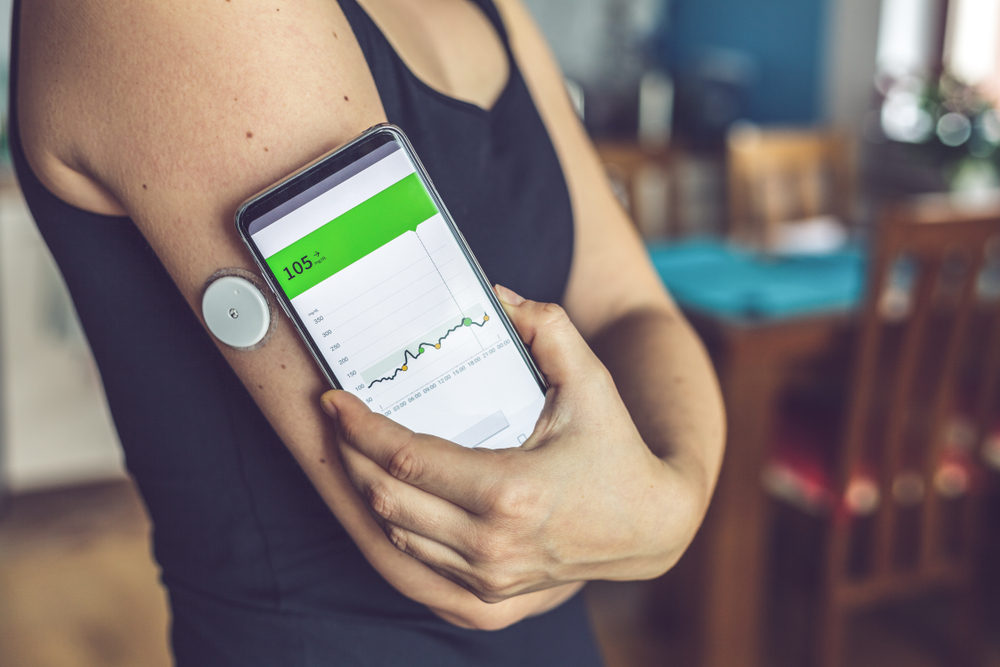The integration of technology into diabetes management has ushered in a new era of possibilities, especially for individuals dealing with chronic complications. From tools that monitor blood glucose levels to advanced insulin delivery systems, technology can significantly enhance care. However, it’s crucial to adopt a personalized approach to ensure that these innovations are effectively tailored to individual needs. In this blog, we will explore how technology benefits those facing chronic complications and the importance of personalized care.
Benefits of Technology for Chronic Complications
Enhanced Glycemic Control
- Continuous Glucose Monitoring (CGM) and Automated Insulin Delivery (AID) systems have shown remarkable success in improving glycemic control. For individuals with complications such as kidney issues or retinopathy, these tools can help stabilize glucose levels and reduce fluctuations.
- Studies presented at the EASD 2024 conference indicated that individuals undergoing dialysis experienced significant improvements in their A1C levels and time in range when utilizing CGM and AID systems. This not only enhances their overall health but also increases their sense of well-being.
Time and Stress Reduction
- The automation of insulin delivery and glucose monitoring can alleviate the burden of constant management. By reducing the need for frequent finger-pricking and manual calculations, individuals can enjoy more time for personal activities and leisure, fostering a better quality of life.
- This reduction in daily stressors can also contribute to improved mental health, allowing individuals to focus on their passions and relationships.
Support for Visual Impairments
- Technology has made strides in supporting those with visual impairments. Tools such as apps that read glucose levels aloud and magnifying devices can empower individuals to take control of their diabetes management more effectively.
- For instance, Android and iOS features like screen readers can help users understand glucose trends and navigate diabetes care with greater confidence.
Challenges and the Importance of Personalization
Rapid Changes and Caution
- While improving glycemic control is essential, it’s important to approach changes gradually, especially for individuals with retinopathy. Rapid improvements in glucose levels can sometimes exacerbate existing complications, necessitating a careful and monitored approach.
- Collaboration between diabetes specialists and ophthalmologists is key to ensuring a safe transition to advanced technologies, particularly for individuals facing multiple health challenges.
Addressing Unique Needs
- Not everyone experiences diabetes in the same way, and complications can vary widely. Personalization in technology usage is crucial. Factors such as skin sensitivity, absorption rates, and comorbidities must be taken into account.
- Continuous feedback from patients is essential to adapt technologies to their specific circumstances, ensuring optimal performance and comfort.
Psychological and Emotional Considerations
- The psychological impact of managing diabetes and its complications should not be underestimated. The stress associated with alarms, notifications, and the constant need for monitoring can lead to anxiety.
- A personalized approach can help alleviate this burden, enabling individuals to use technology in a way that complements their lifestyle and emotional well-being.
Conclusion
Technology holds immense promise for enhancing the care of individuals with diabetes, particularly those facing chronic complications. By leveraging tools like CGM and AID
Call to Action Have you experienced the benefits of technology in managing diabetes and its complications? Share your stories and insights in the comments to help create a supportive community for those navigating similar challenges.

Type 2 Diabetes: Is It Really Reversible?
A recent National Geographic article [link] explores how type 2 diabetes could be reversible with the right approaches. This condition, which affects millions of people worldwide, has long been considered a chronic and progressive disease. However, recent research challenges this perception and suggests that with lifestyle changes and the right approach, remission is possible. The

How Do GLP-1 Drugs Compare? A Breakdown of Ozempic, Mounjaro, and Trulicity
GLP-1 receptor agonists have revolutionized diabetes management, with drugs like Ozempic, Mounjaro, and Trulicity leading the market. But how do these medications compare in terms of effectiveness, side effects, and patient outcomes? Let’s explore their differences and what they mean for diabetes patients. Understanding GLP-1 Medications GLP-1 receptor agonists mimic a natural hormone that helps

Why Has Medicare Spending on Diabetes Medications Skyrocketed in 5 Years?
In the past five years, Medicare spending on diabetes medications has increased nearly fivefold, reaching $35.8 billion in 2023. This surge has been primarily driven by the growing use of GLP-1 drugs such as Ozempic, Mounjaro, and Trulicity. But what is behind this cost escalation, and how does it affect patients and the U.S. healthcare

The Gut Microbiota and Blood Sugar Control: A Hidden Connection
The human gut is home to trillions of bacteria that play a crucial role in digestion, immune function, and even metabolism. Recent research has revealed a fascinating link between the gut microbiota and blood sugar regulation, shedding light on how the balance of microbes in our intestines can influence diabetes risk and overall metabolic health.

The Dawn Phenomenon: Why Blood Sugar Rises While You Sleep
For many people with diabetes, waking up with high blood sugar levels can be frustrating—especially if they didn’t eat anything overnight. This early-morning spike in blood glucose is known as the Dawn Phenomenon, and it happens due to natural hormonal changes in the body. But why does it occur, and how can it be managed?

The Influence of Red Light on Blood: Can It Improve Diabetes?
Type 2 diabetes is a metabolic disease characterized by insulin resistance and elevated blood glucose levels. In the search for complementary alternatives to improve glycemic control, red light therapy has gained attention due to its potential to enhance circulation, reduce inflammation, and optimize cellular function. But what does science say about it? ✨ What is

